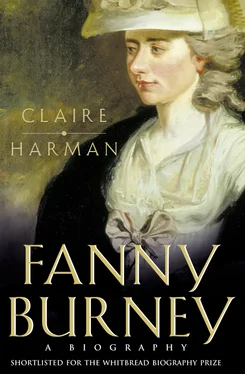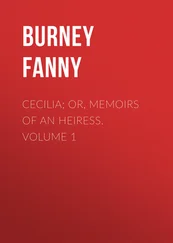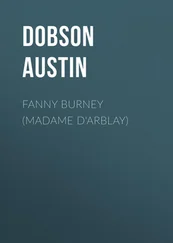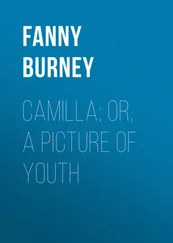On her return from Paris, * eleven-year-old Susan was struck by the differences between her two elder sisters, one of whom had enjoyed the same opportunities for travel and education as herself, the other of whom had stayed at home:
The characteristics of Hetty seem to be wit, generosity, and openness of heart; – Fanny’s, – sense, sensibility, and bashfulness, and even a degree of prudery. Her understanding is superior, but her diffidence gives her a bashfulness before company with whom she is not intimate, which is a disadvantage to her. My eldest sister shines in conversation, because, though very modest, she is totally free from any mauvaise honte : were Fanny equally so, I am persuaded she would shine no less. 46
Observers who were less well-disposed than Susan might easily have dismissed Fanny as affected or dull. The superior intellect was not on public display (now or ever), while the bashfulness and ‘degree of prudery’ were marked. By the age of fourteen Fanny had adopted patterns of behaviour – all stemming from vigilant self-appraisal – that she would never be able to break completely.
But there was another side to Fanny’s character, of ‘wildness’ ‘friskyness’ and invention, which Susan’s company brought out. Only Susan was shown the precious writings, and ‘the stolen moments of their secret readings’ together were, in retrospect, ‘the happiest of their adolescent lives’. 47 Among the pieces Susan read was Fanny’s manuscript novel, ‘Caroline Evelyn’, a sad tale of abandonment and ill-usage, which ended with the young heroine dying in childbirth. Like the ‘Elegies, Odes, […] Tragedies and Epic Poems’ Fanny had been writing, it reflected the melancholy that had settled on her after her mother’s death. But with Susan re-established at home, such mournful ruminations had become obsolete. In that year, * Mr Crisp had been amused and surprised to see Fanny dancing a wild jig on the lawn at Chesington Hall, ‘with Your Cap on the Ground, & your long hair streaming down your Back, one shoe off, & throwing about your head like a mad thing’. 50 This was a far cry from the bashful, mumbling behaviour Fanny usually displayed in public. ‘[T]here is a nameless Grace & Charm in giving a loose to that Wildness & friskyness sometimes’, Crisp told her years later, acknowledging how much of this element there was in his young friend’s character, however seldom anyone outside the family circle got to see it.
Change was in the air in the Burney household. Unknown to his children, Charles Burney was once again courting Mrs Allen. The opportunity to renew acquaintance with the beautiful widow had come in 1765 when she placed her elder daughter, lively fourteen-year-old Maria, at school in London and rented a house in Great Russell Street as a winter base. Charles Burney was appointed to teach Maria music, and arranged for the lessons to take place at teatime, in order that ‘when he was liberated from the daughter, he might be engaged with the mother’. 51 Chastened by his earlier failure, Burney adopted a gentler line of courtship over the next eighteen months or so, accompanying Mrs Allen to the opera and to concerts, both of which she loved, and sending her his prose version of Dante’s Inferno instead of poems like ‘The Witch’. In truth, there was nothing for Mrs Allen to gain materially from a remarriage: she would lose the £100 annual income under her first husband’s will and gain a low-earning husband with six children and a chaotic workload. Nevertheless, Burney kept up the campaign, contriving meetings when the widow’s ‘imperious’ mother was absent. He was clearly in love, as well as very keen to find a second mother for his family and a supporter (financially and morally) for his work. By the spring of 1767, his patience was in sight of paying off: ‘my beloved Mrs Allen […] began to be weaned from her fears’, he wrote, ‘by affection and consta[nt] importunity; and I flattered myself I was gaining ground’. 52
When Elizabeth Allen returned to Lynn for the summer in April 1767, Burney bombarded her with letters, sent under cover to Dolly Young or in a feigned hand to avoid the vigilant mother’s eye. Like his daughter Fanny, he seemed to relish a conspiracy: ‘our correspondence had all the Air of mystery and intrigue; in that we seemed 2 young lovers under age trying to out-wit our parents and guardians’. 53 Unfortunately, Elizabeth’s mother could not be outwitted forever, and her objections to the match were strong. Charles decided to try another approach through her son Edmund, and to this end arranged a trip to Bristol Hotwells, taking ‘my 2d daughter Fanny’ along with him.
This was Fanny’s first, and possibly only, visit to Bristol, and lasted only three days, but the impression made on the fifteen-year-old must have been extremely vivid, for she set a large part of her first published novel there. She had no idea of the real purpose of her father’s visit – to her it was a delightful privilege to be his sole companion, a pleasure possibly enhanced by the melancholy association of the Hotwells with her mother’s last illness. Any special marks of attention from her father must have been flattering, and one can imagine that Burney was in a particularly animated mood at the thought of gaining consent to his nuptials. He was also, presumably, keen to give Fanny a treat of some kind, knowing that if his plans went ahead, there would no longer be any question of her going abroad to school.
Burney took Fanny with him again, with one of her sisters (probably Susan), when he went to Lynn in June 1767 for a wild courtship holiday. It was the first time Fanny had been back to her native town since the family moved to London in 1760, and it was of course another place deeply associated with her mother. They stayed at Mrs Allen’s dower-house opposite St Margaret’s for a month, during which time Burney and Mrs Allen visited ‘almost every place and thing that is curious in Norfolk, making love chemin faisant’ 54 (the way Burney did everything). Dolly Young acted as chaperone on this tour, but was possibly not very strict, nor always in attendance. Who else, after all, was there to attend to the girls while Burney was ‘making love’, if not Dolly?
By the end of their romantic holiday, the couple had come to an agreement. They were to marry, but secretly; only their closest friends, Dolly Young and Samuel Crisp, were to know about it. The ceremony took place on 2 October at St James’s Church, Westminster. Charles must have found some excuse of work to account for his three-day absence on honeymoon at a farmhouse near Chesington Hall – arranged by Crisp – after which he and his new wife returned to their separate houses in town as if nothing had happened. Several reasons for this strange deception suggest themselves. Old Mrs Allen, Elizabeth’s mother, * viewed Burney as a fortune-hunter, and continued to disapprove of the match. Perhaps Elizabeth’s brother Edmund also disapproved, since he took no part in the wedding. As it was, the bride was given away by her banker, Richard Fuller. Since the couple did not wait to gain the Allen family’s consent, either they had given up trying to win it as hopeless, or they had become lovers and wanted the cover of legitimacy (albeit secret) in case Elizabeth became pregnant. Charles Burney had, after all, got Esther pregnant before they were married, a fact that Elizabeth, as an intimate of both parties, would very probably have known.
The banker was a symbolic presence at the ceremony that October morning, since the disparity of wealth between the couple had threatened the match, and was still being argued over by the bride’s son and the groom’s daughter sixty-six years later. Mrs Allen had, at what date is unclear, invested a large part of her £5000 in the English Factory in Russia, which subsequently failed. In an overtly self-justifying letter to Dolly Young, 55 Charles Burney claimed that his second wife’s money was ‘almost all gone’ before the Russian bankruptcy, which itself was ‘many months before our marriage’. If this had been the case, his wife must have frittered away a fortune in the four years of her widowhood and come to the new marriage dependent on him . But by remarking ‘I never touched a penny from the wreck in Russia’, Burney acknowledges that something was salvaged from it; Stephen Allen, Elizabeth’s son, claimed this sum was as much as £1000 (again, the date at which it was recovered is unknown). Allen also reckoned that his mother was in possession of at least £600 at the time of her marriage, and was owed £900 by a family friend, James Simpson. * With her properties and the rent from them added, the whole amount his mother brought to her second marriage was ‘not actuated at less than £4000’. 56
Читать дальше












